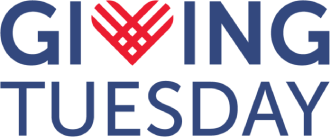Extensive datasets and new, broadly accessible tools capture the complex ecosystem of organizational and community-based giving, foster increased collaboration, and will unlock the potential of the social sector.
GivingTuesday, the groundbreaking global generosity movement celebrating its 10th anniversary this year, announced a $26 million capital campaign for the expansion of its Data Commons, the largest philanthropic data collaboration ever built. GivingTuesday is poised to scale the Data Commons and expand the infrastructure and partnerships needed to transform the social sector with the largest collection of comprehensive, up-to-date datasets of giving behaviors around the world, a connected, collaborative network of practitioners, and leading-edge accessible and extensible tools.
GivingTuesday forged a new, distributed model of co-creation and a global leadership network that has led to billions of dollars in donations, hundreds of millions of community-level actions, and a presence in 80+ countries. The Data Commons applies the proven distributed model and collaborative culture of GivingTuesday to reimagine both the traditional research institute and the industry data marketplace.
“Industries from retail to manufacturing rely on big data that tracks information on economic indicators, customer behavior, and market trends, among other data points, to drive better decision-making and increased revenues,” said Woodrow Rosenbaum, Chief Data Officer of GivingTuesday. “The Data Commons was established to offer that same kind of insight to mission-driven organizations, which have for far too long, been operating without these critically important 21st-century tools. Building on our success as we scale up the Data Commons, our increasingly valuable evidence-based insights and learning will act as a springboard for organizations to become more innovative, impactful, and agile, and ultimately able to do more good in a constantly changing world.”
The Data Commons tackles arguably the most significant systemic problem the social good space faces: data that is not only incomplete, but also siloed, opaque, closely guarded, and outdated. These shortcomings hamper research and limit innovation at a time when creative new solutions are desperately needed.
Using a collaborative, knowledge-based environment that promotes participation from a wide range of stakeholders, the Data Commons is creating a first of its kind, comprehensive data infrastructure to provide a holistic understanding of global giving, including structured donations of time, goods, and funds to traditional institutions and giving that happens in a myriad of ways in communities around the world in unstructured ways and through organized but unincorporated efforts. The Data Commons makes that valuable data accessible with sophisticated, accessible tools to inform better decision-making. Its collaborative model connects organizational leaders, academic researchers, policymakers, and social enterprises and enables data-based learning to be integrated into everyday operations and long-term strategic planning.
“GivingTuesday envisions a world where giving in all forms is a foundational part of everyday life– a world where generosity, support, and connection exist at every level in neighborhoods, communities, and countries around the world. The GivingTuesday Data Commons is a key part of making that vision a reality, and expanding it ambitiously is a major milestone in growing global generosity together,” said GivingTuesday Chief Executive Officer Asha Curran. “An expanded Data Commons inspires people across the generosity economy to collaborate and innovate, share insights and best practices, and respond both strategically and quickly to an environment increasingly rife with crisis and immense challenges. We’re deeply grateful to our partners and funders and are looking forward to expanding this community of practice as we scale the Data Commons and launch the capital campaign fueling it.”
To realize this vision, the Data Commons capital campaign has established a target of $26 million over the next five years, with 40% of the goal already confirmed during the early phase of the campaign. Major donors to date include Google.org, The Bill & Melinda Gates Foundation, Fidelity Charitable Trustees Initiative, Belfer Family, Heinz Family Foundation, National Philanthropic Trust, Paypal, and Schwab Charitable. GivingTuesday also received an unrestricted $7 million grant from MacKenzie Scott and Dan Jewett in 2021, enabling the acceleration of the Data Commons infrastructure and laying the groundwork for this capital campaign.
GivingTuesday founding Board Member Laurence Belfer, who is also founder of the Belfer Center for Innovation and Social Impact at the 92nd Street Y, New York, where GivingTuesday was created, said, “From the beginning, the collaborative ethos of GivingTuesday has paved the way for new partnerships and unprecedented data-sharing within the social sector, and the result is the Data Commons: the most comprehensive collection of data in the sector. With the investment in personnel and technology made possible by the capital campaign, GivingTuesday is taking this resource to the next level and laying the groundwork for a social sector that will be much better able to leverage and expand generosity.”
“Data has always been part of our DNA at Google. At Google.org, we look for opportunities to close data gaps that will promote progress on some of our toughest social challenges,” said Andrew Dunckelman, Head of Impact and Insights at Google.org. “The GivingTuesday Data Commons is a critical resource bringing together diverse data streams and enabling the sector to use that information to be more effective.”
“The GivingTuesday Data Commons is having a huge impact on the charitable sector’s understanding of generosity, especially shifts in giving attitudes and behaviors over time,” said Agus Galmarini, program officer at the Bill & Melinda Gates Foundation. “Thanks to the Data Commons, we are getting real-time insights on donor behavior that have the potential to transform philanthropy and drive much-needed resources to organizations on the front lines of the world’s biggest challenges.”



